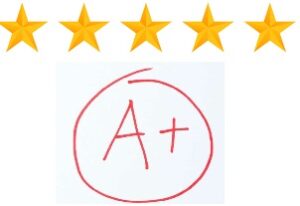The majority of nursing students struggle to complete assignments on professional accountability & legal liability essays. One of the primary reasons behind this is that they lack the necessary information. Secondly, nursing students may have to juggle between work, extra-curricular activities, and their coursework; therefore lacking sufficient time to create a decent paper. This is why our nursing essay writing experts assist you to complete nursing papers on a variety of specialties such as professional accountability and legal liability.
What is Professional Accountability & Legal Liability?
The healthcare industry has changed rapidly throughout the years, drastically altering the tasks and functions of clinical staff. Professional accountability & legal liability is a major aspect of nursing education that focuses on educating nursing students about their duties in the healthcare system. Professional accountability refers to the frameworks and best practices that nurses must follow when performing their tasks and accomplishing their goals. On the other hand, legal liability relates to the statutory principles applicable to nurses in the healthcare industry.
Why Learn Professional Accountability & Legal Liability?
Understanding professional accountability and legal liability enable nurses to provide appropriate nursing care to patients while also avoiding legal action. Understanding professional accountability and legal liability enable nurses to provide the best patient-focused nursing care to patients within their legal bounds.
Nursing students are frequently assessed on professional accountability & legal liability to ascertain their comprehension of duties and associated with legal ramifications. For example, nurses are accountable for encouraging safe and quality patient care, which is crucial for enhancing the healing process and ensuring that patients do not spend an excessive amount of time in hospitals.
Failure to encourage safe patient care may expose nursing students to legal action and other penalties as a result of negligence. These practitioners are also accountable for upholding high clinical practices in all locations where they operate and ensuring that the quality of care is never compromised. This is a component of the professional accountability that nursing students are taught during their nursing education.
Additionally, nursing students are assessed on the Nursing Practice Act, administrative laws and regulations of the state board of nursing, as well as policies affecting the healthcare sector. With this knowledge, the professional trainees can devise efficient techniques for mitigating legal risk on the job and enhancing the quality of care provided to patients.
Why are the best nursing essay writing service?
Instant Grades is the best nursing essay writing service because we write plagiarism free assignments that are guaranteed to score excellent grades – A+ or B minimum (or money back!) and are delivered within your deadline. Moreover, you can get an essay done in as little as 3 hrs!
9.8/10 Student Rating

98% of students get As or Bs!
Experienced Nursing Essays Experts

10+ years helping students!
On-Time Delivery

Never miss a deadline!
Importance of Professional Accountability in Nursing
Professional accountability in nursing ensures that nurses are well-versed with what their tasks entail and are fully aware that they are responsible for management strategies they execute for patients. Therefore, in order to be accountable, their actions should be conducted within the best advanced nursing practices frameworks.
Nurses frequently encounter daily time constraints and constantly changing job requirements. They are frequently tasked with balancing increased assignments with heightened severity patient allocations, disproportional nurse-patient ratios, and institutional constraints. The practitioners must eschew workarounds in favor of protocols and methods associated with favorable therapeutic results. This demands nurses to develop a clear, collaborative framework for assessing the staff skill mix and matching hospitals’ skill levels to patient needs in order to give the safest and highest-quality care feasible.
Professional Skills
To serve the increasing healthcare concerns of patients living much longer with serious diseases and complex clinical manifestations, nurses must hold themselves professionally accountable for developing their clinical skills and experience and incorporating definitive evidence-based practice conclusions to advise on various interventions. Clinical competency needs ongoing participation in order to maintain and develop the skills required to offer outstanding care to our patient group.
In addition, nurses must maintain complete focus on the current issue or patient through every professional team meeting free of personal distractions. This concentrated engagement enables them to address critical aspects that may have an effect on patient safety and outcome. As a mentor, nurses should assist their colleagues who are trying to execute new duties in order to build their confidence and ensure their practice adheres to corporate standards.
Need for New Professionals
Each year, the nursing industry loses an increasing number of skilled professionals to retirement. As fresh graduate nurses enter the practice areas, the sitting practitioners have the duty to serve as role models for professional behaviors that emphasize patient-centered care over a task-oriented atmosphere. As patient advocates, we must also demonstrate cultural competence, with the objective of restoring each patient to optimal wellbeing, following the patient’s desires, and providing the utmost degree of satisfaction when the patient chooses to move to palliative care.
While professional accountability enables us to celebrate our accomplishments, it also requires us to be forthright and honest when an oversight or mistake arises. When this occurs, we should take a root cause analysis approach instead of a punitive approach to identifying system faults. Internal protections enable us to offer the appropriate intervention to the appropriate patient at the appropriate time, every time.
Nursing Professionals Legal Liability Areas
-
Beneficence
All nurses are aware of the concept of beneficence, which is a legal term that refers to behaviors that improve another’s well-being, particularly in the medical area. Beneficence may be further defined as doing or refraining from acting in the best interests of patients allocated to the care of a medical professional.
-
Nonmaleficence
Another nursing guiding concept is nonmaleficence, which is defined by the expression “first, do no harm.” This is the underlying premise of one of the most fundamental medical principles: that a healthcare professional should not injure but rather benefit patients. This principle has been explored and established because medical practitioners making end-of-life decisions may order therapies they believe would benefit the patient without considering the possibility that the treatments will damage the patient.
The majority of treatments entail a risk of harm, which may occur if the patient’s medical prognosis without treatment is disabling or deadly. Thus, it is critical for physicians and nurses to ensure that patients understand all of the risks and advantages connected with their medical therapy. Additionally, nurses and doctors should confirm that the patient consents to treatment and documents the patient’s comprehension that the possible benefits may exceed the dangers.
Nonmaleficence is a difficult concept to define and interpret. Nonmaleficence is in tension with the idea of doing good (beneficence), and the results of these two diametrically opposed principles frequently raise the legal issue of double effect. Unfamiliar to nursing practitioners, the term “dual effect” refers to the distinct types of outcomes that might result from a single activity. The double effect may refer to the combined influence of beneficence and non – maleficence in medical situations. A patient on the verge of death may use morphine or other powerful pain drugs to achieve the positive effect of reducing pain and suffering, but the drug may have the maleficent impact of suppressing breathing and other functions, hastening the patient’s death.
Writing a Professional Accountability & Legal Liability Paper
-
Tip 1: Formulate a good PICOT question in order to have an easier time doing a literature review.
Using the PICOT method enables the development of a careful and thoughtful question, which facilitates the search for evidence. A well-framed question makes it relatively simple to evoke and incorporate the terms necessary to show the information need in the query language of whatever search service is accessible.
The question should specify the patient or population to be studied, the treatment to be used, a contrast of one treatment to another where applicable, and the anticipated results. After developing a well-structured question, students will be best prepared to conduct a literature review for evidence supporting their previous PICOT question. Understanding how to formulate a complete PICOT question is critical for RNs enrolled in a doctor of nursing practice (DNP) program. -
Tip 2: Use Peer-Reviewed Sources.
For most nursing students, the process of locating significant and the best available clinical evidence can be overwhelming. Ensure that you use credible sources such as peer-reviewed journals and other scholarly academic material in formulating major materials, providing supporting evidence or data, and reference any section of your paper. You will need to add an in-text citation for each source used. Ensure that there is a corresponding entry in your bibliography/reference page.
-
Tip 3: Consider the type of research for your PICOT paper.
Once you have constructed the question through the PICOT format, you can consider the nature of the question and, consequently, the type of research that would give the correct response.
After developing and researching the PICOT question, find the most suitable type of study. Meta-analysis, critical appraisal, randomized controlled trial, longitudinal design, case analysis, and systematic review are all types of studies applicable for evaluation in a PICOT paper. -
Tip 4: Write your Paper Section-by-Section.
Writing a PICOT paper section-by-section has been explained under another heading here. This is very important as it allows you to flow systematically from one section to another. In addition, it enables a student to allocate sufficient time for each section and meet the deadline for submission.
Moreover, writing a paper section-by-section enables a student to place greater emphasis on sections that have more weight and carry more points as stipulated in your grading criteria in the rubric. By scoring maximum points in these sections, students are a step closer towards getting an excellent grade in their PICOT paper. -
Tip 5: Proofread and Edit your Draft Severally
Once you finish writing a draft, proofread your paper in order to edit out grammatical and syntax errors. Moreover, ensure that the content is at par with your course outcomes or learning objectives and meets advanced nursing practice guidelines.
Once done with editing out these errors, run your paper through a plagiarism checker before submitting it in order to ensure that it is plagiarism-free.
How much does it cost to write your nursing essay?
Instant Grades nursing essay help service prices start at $12 for a deadline due in 30 days or more. Prices rise steadily as the time you need your thesis done by reduces.
- Nursing papers due in 20 days cost $15 a page
- Nursing papers due in 10 days cost $16 a page
- Nursing papers due in 7 days cost $18 a page
- Nursing papers due in 3 days cost $20 a page
- Nursing papers due in 24 hours start at $24 a page
- Nursing papers due in 12 hours cost $28 a page
- Nursing papers due in 8 hours cost $36 a page
Contact us on Whatsapp for Excellent Grades – A+-
The Best Nursing Essay Writing Service
- Instant Grades is the best nursing essay writing service because our experts offer plagiarism free assignment help that is guaranteed to get you excellent grades – A+ or B minimum.
- In addition, we are the best essay writing service because we always deliver high-quality, properly referenced assignments within your deadline.
- Finally, we are the best essay writing service because we have over 200+ essay writers who are reliable, trustworthy, competent and have over 10+ years of experience helping students write their papers. Our writers are highly qualified and hold BSN, MSN, and PhDs in their respective specialties. They have gained experience first as students and then as respected academicians and professionals in nursing.
Related Content
- College Nursing Assignment Help
- How to Write Excellent Nursing Essays
- How to Write a Nursing Research Paper
- How to Write a Nursing Thesis Paper
- How to Write a Nursing Reflective Paper
- How to Write a Nursing Capstone Paper
- How to Write a Nursing PICOT Question
- How to Write a Nursing Case Study Paper
- How to Write an Evidence-Based Practice Paper
- Writing Tips on Application of Theory Nursing Essays
- Writing Tips on Translational Research Nursing Essays
- Writing Tips on the Role of Nurses Essays
- Writing Tips on Theoretical Foundations of Nursing Essays
- Writing Tips on Health Reform Plan Nursing Essays
- Writing Tips on Access to Healthcare Nursing Essays
- Writing Tips on Holistic Nursing Essays
- Writing Tips on Theory-Based Practice Nursing Essays
- The Best Nursing Essay Writing Service
- Pay Someone to Do Nursing Paper in 3 hrs
- Pay Someone to Do Online Nursing Class
- Writing Tips on Nursing Care Plans Essays
- Writing Tips on Tasks and Core Values Nursing Essays
- Top 10 Nursing Topics & Trends Expected in 2023 and Beyond

